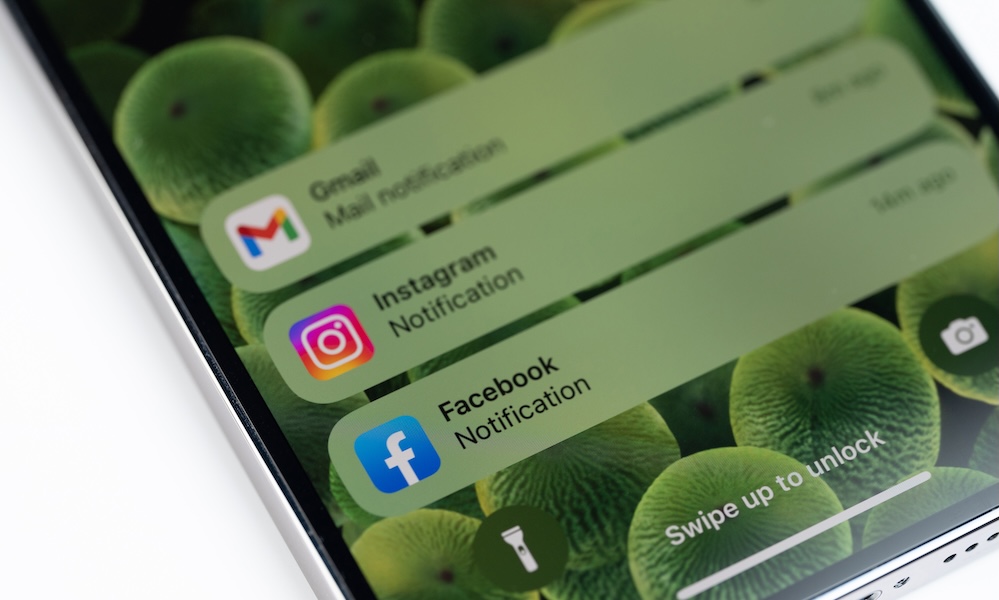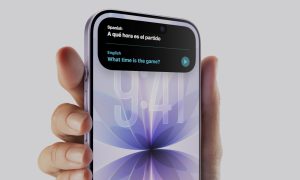Study Reveals Side Effects of Smartphone Addiction, and Withdrawal Symptoms

New york, USA - May 14, 2023: Notifications on unlocked iPhone screen macro close up view
An Australian news outlet recently reported the results of a recent Amazon study on smartphone habits and smartphone addiction in the country. As it turns out, many Aussies (and let’s face it, probably the rest of us, too) are more addicted to their smartphones than they think.
It makes sense that Amazon would sponsor such a study, as its Kindle is primarily used for reading and its e-ink screen is much easier on the eyes. We should note that we couldn’t find a direct link to the study. However, even if there’s a discrepancy as to what qualifies as a true “addiction,” here are some unhealthy smartphone habits, and their consequences.
The primary culprit behind poor smartphone habits is notifications. We know, notifications aren’t limited to our phones; they also come from our laptops, smartwatches, tablets, and desktops. According to the study, as many as 25% of Aussies receive notifications throughout the day until they go to sleep. 56% of the participants reported feeling frequently distracted during the day.
What’s so unhealthy about notifications? We begin associating every alert, whether a sound, vibration, or ring, with something urgent. Most of the time, it isn’t. I definitely fit in with this group. I’ll let my attention get derailed by a Ring doorbell notification that someone nearby had a raccoon in their trash. Hardly pressing. Neuroscientists Dr. Mark Williams explained to news.com.au the specific dangers of constantly reacting to every notification.
This activates our cognitive control network, diverting focus away from what we were doing…it takes anywhere from 60–90 seconds to focus and engage with the original task. This Constant switching between tasks trains our brain to be in a state of high alert, diminishing our ability to concentrate for extended periods of time.
Naturally, the more we’re distracted, the harder it becomes to focus for longer periods. Ultimately, our productivity takes a hit and we still feel tired at the end of the day despite accomplishing less.
Dr. Williams says notifications trigger a release of dopamine, which is why many of us compulsively check our iPhones. This looks like an addictive behavior. To top it off, 86% of the study participants felt stressed by the end of the day. Another 69% said they go to sleep later because of notifications.

It’s also been reported that those with severe phone and social media addictions can suffer withdrawal symptoms sometimes as severe as those experienced by drug users trying to quit heroin. These include shaking, sweating, and insomnia. Like other addictive drugs, smartphones and social media usually start off slow, but over time many people become dependent on them. This addiction affects your entire life and can also be seen as a form of self-medicating by turning to your phone anytime you’re feeling stressed or sad. Phone and social media addicts become so used to their phones that they have a hard time enjoying other everyday activities and interactions.
There are lots of tips about how to reduce reliance on your phones. We mentioned a few last week. Ultimately, it boils down to discipline and self-control. For iPhone users, Silent mode and Do Not Disturb offer a variety of customization options for notifications and alerts so that you can tailor the settings to your specific needs at specified times. It may take some tinkering to find the right settings for you as well as some time to develop the discipline to implement changes. Hopefully, you’re up for it. We think it’s worth a try.







